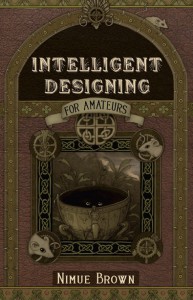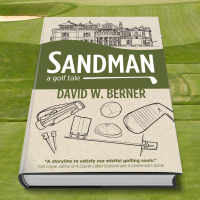
[caption id="attachment_269" align="alignleft" width="193"] That book cover is art. You may be shocked to learn it wasn't the first thing
the artist (Tom Brown) ever drew.[/caption]
That book cover is art. You may be shocked to learn it wasn't the first thing
the artist (Tom Brown) ever drew.[/caption]
One of the curious bits of advice thrown at authors is ‘write what you know’. I have mixed feelings about this. On one hand it drives me nuts when people write epic fantasy battles without the least idea of any kind of military tactics. Why, in the Lord of the Rings films, do cavalry keep charging at pikes, lances and oliphants? You use the superior manoeuvrability of horses to flank the enemy and hit them where they are weakest. You don’t deliberately run horses towards pointy things. I could rant on about this, in its many forms, pretty much forever. Clearly it’s not a good idea for writers to blithely go round writing about things they know nothing about.
Then at the other extreme, we have writers who are locked in to writing autobiography. All characters are facets of themselves, all events are based on experience. Granted, there are a number of people who have lived such full, intense and unusual lives that this works out well for them. Most of us won’t get more than a book out of ourselves. I find me boring. I spend enough time in my own life, I don’t really want to regurgitate too much of it when I’m writing a book. Where’s the fun in that?
Somewhere between the fatal mountains of ignorance and banality, lies the canny valley. It wriggles about between the two, and to travel it, you’ll walk the foothills of both. There’s a river at the bottom and if you get into that, you’ll either be drowned, or carried away.
To travel the canny valley, an author has to find balance between what they know and what they don’t. This can call for research and experiment. One answer to writing what you know, is to get out there and undertake to know more things, so that you have more to write about. Another possibility is to start with pure speculation and then fill in the gaps when you spot the things that it might be possible to know about. Looking at the world and asking questions invites us to move from what we know into a broader, richer view of things. Trying to figure out how a person would have to think for their words or actions to make perfect sense for them, is part of the rich soil of the valley floor. Asking why, and what if, and where might we go from here... will also keep you grounded and in the valley.
There are always blurred edges between fiction and autobiography. Our personalities and lives are bound to shape our writing. However, it’s when we move beyond our own, immediate experience into a state of sympathy with more that is outside of us, that the really interesting things happen. Then it’s a journey into lands we haven’t seen before.
Categories:
0 comments on this article







